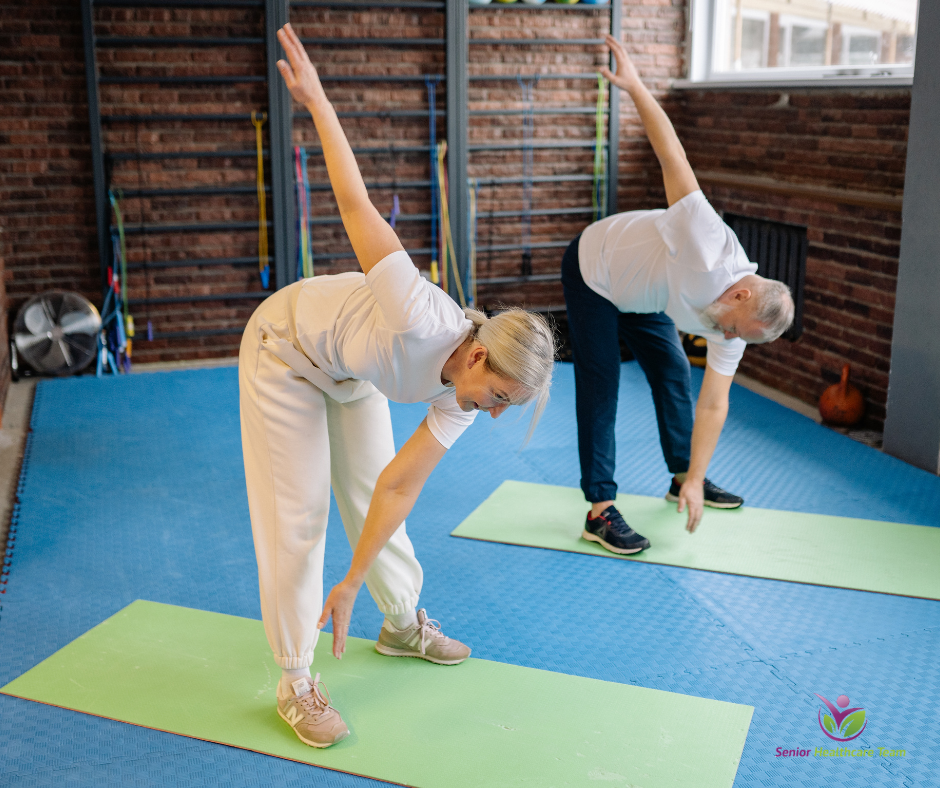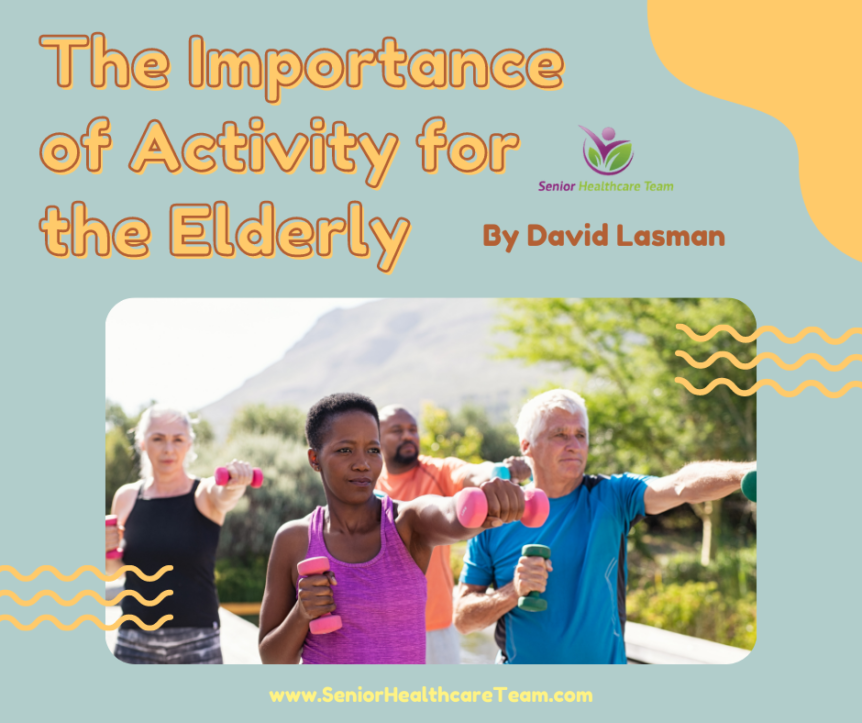People today have a longer life expectancy than ever before. In 2018, the expectancy of life at birth for men and women was 82 years and 88 years respectively. After retiring from 65, elders can spend their time wisely to live their lives to the fullest.
The importance of activity
Activity is an integral part of our lives. Every day we participate in different kinds of activities including self-care, leisure activities, and household chores, etc. Proper arrangement of activities becomes more important when elders have more leisure time after retirement. Voluntary to participate in activities that have a specific goal which can give us a sense of satisfaction, happiness or achievement, these activities are called “meaningful activities”.
Benefits of activities
Some elders may think that they are too old, why bother? Some elders even refuse to accept new things. Actually, elders could gain more control over new activities and new tasks through active participation and trial without comparing. In this way, their anxiety could be reduced and can also reap the benefits of activities, which include:
1. Improving health
Some elders may prefer to take rest rather than being active due to poor health conditions, some elders are reluctant to participate in activities because they fear dealing with new things. According to the Global Strategy on Diet, Physical Activity and Health announced by the World Health Organization in 2010 , elders aged 65 or above should do at least 150 minutes of moderate-intensity aerobic physical activity throughout the week. Physical activity includes leisure time physical activity (e.g. walking, dancing, gardening, hiking, swimming), transportation (e.g. walking or cycling), occupational (if the individual is still engaged in work), household chores, play, games, sports or planned exercise, in the context of daily, family, and community activities, can improve cardio-respiratory and muscular fitness, bone and functional health, reduce the risk of non-communicable diseases, depression and cognitive decline.
2. Training up cognitive function
Engage more cognitive activities such as read newspapers/magazines, use computer, play board / card games, play mahjong, writing, calligraphy, drawing, play musical instruments, do art and craft, can stimulate our brain, train up cognitive functions, thereby increasing cognitive reserve which helps to reduce the risk of dementia.
3. Boosting confidence
Even elders living in residential care homes can participate in voluntary work such as give a helping hand to those who are weak, help the staff to do some household tasks such as folding clothes and towels, distributing tableware and taking care of the plants. This will not only help others but also enhance self-confidence and increase sense of satisfaction. This can also improve their ability to cope with daily changes.
4. Reducing behavioral problems in demented elder

Research also revealed that elders with dementia living in residential homes who attended more meaningful activities or those activities matching their abilities can make full use of daytime, consume excess physical energy, and reduce idle or nap time. This can help them to develop a structured daily routine and reduce behavioral and psychological problems; for example, participating in reminiscence activities can improve mood and cognitive functions; sensory stimulation activities such as music therapy can reduce their anxiety, restlessness and agitated behaviors.
5. Improving inter-personal relationship
Some elders avoid participating in activities because they fear that they cannot get along well with others. In fact, participation in group activities such as morning exercise or travelling provides a good opportunity for improving their communication skill and expanding their social network.
6. Promoting and maintaining ability in self-care
Through performing daily self-care, like grooming, bathing, doing household chores including shopping, cooking, elders can have a chance to actively mobilize their joints and stimulate their brain, in turn helping them to maintain or enhancing their self-care ability.
Classification of recreation and leisure activities
There are many types of activities, according to WHO “International Classification of Functioning, Disability and Health”, examples of some recreation and leisure activities are listed below:
- Play: Engaging in games with rules or unstructured or unorganized games and spontaneous recreation, such as playing chess or cards.
- Sports: Engaging in competitive and informal or formally organized games or athletic events, performed alone or in a group, such as bowling.
- Arts & Culture: Engaging in, or appreciating, fine arts or cultural events, such as going to the theatre, cinema, museum or art gallery, or acting in a play, reading for enjoyment or playing a musical instrument.
- Crafts: Engaging in handicrafts, such as pottery or knitting.
- Hobbies: Engaging in pastimes such as collecting stamps, coins, or antiques.
- Socializing: Engaging in informal or casual gatherings with others, such as visiting friends or relatives or meeting informally in public places.
- Other recreation and leisure
How to choose activities for the elders?
When choosing an activity, apart from choosing according to one’s own hobbies and interests, elders also need to realize their abilities and physical conditions, clearly understand the physical demand of the activities. For example, in regard to physical fitness, different activities have different requirements of upper limb and lower limb function. Playing mahjong requires good hand function whereas dancing requires both upper and lower limbs coordination; hiking may not be good for someone with knee pain; however, one can still enjoy the fun of morning exercise by strolling through the park.
Different activities require different aspects of cognitive functions including memory, attention, comprehension, writing skills, listening and expression. Activities like horticulture, singing, watching TV and personal beauty have lower cognitive demand, whereas activities like reading, writing and creative craft have higher demand in cognitive function.
Moreover, some elders may have visual or hearing impairment. For example, elders with poor hearing may have difficulty in listening to the radio or hearing news on the TV, yet they can read newspaper to keep in touch with the world instead.
As long as elders choose the activities based on their own physical condition, they can still enjoy the activities.
Arranging activities for oneself
After understanding the advantages of activities and how to select them, it is time to put it into practice. Elders can follow their interest and capability to incorporate activities into their schedule, and actively participate in the activities of residential care home or elderly centers. They can all enjoy a fulfilling life.
By David Lasman – “Ask Medicare Dave” | President – Senior Healthcare Team
An important part of staying healthy is preventing slips and falls, so here are some easy ways to implement a plan: Preventative Care for Seniors
wwww.SeniorHealthcareTeam.com | 866-333-7340
Selecting the right healthcare plan through Medicare can be overwhelming and downright stressful. Senior Healthcare Team is a nationwide resource that provides guidance and support about Medicare to seniors at no cost to them and helps them to choose the most suitable insurance plan tailored to their specific needs and budget. Our goal is to educate and empower our clients to make the best decisions regarding their healthcare and clear up the confusion of Medicare. At Senior Healthcare Team, we aren’t partial to any one insurance company. Our loyalty is to our clients and our mission is to provide them with the best healthcare options at the very lowest cost.

